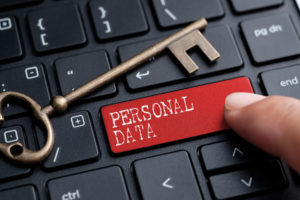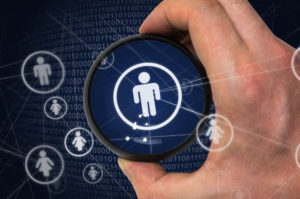
If you thought that the use of the internet or social media just poses the routine risks of being hacked and getting your details stolen, you may have to revise your opinion, since some pranksters can use it for more serious consequences.
One such dangerous game these people play is called doxxing, in which a person’s details are misused to mount an attack on them to seek revenge.
Some cases of doxxing reported in recent times are quite concerning, to say the least.
However, there are ways to keep yourself safe from such situations, if you fully understand how doxxing is precipitated and the steps you need to take to safeguard yourself.
Doxxing Explained
It is believed that the term doxxing is derived out of the simple term “documents,” which is abbreviated as docs and that’s how the word “dox” came into modern use.
In the American context, a person’s address, phone number and more importantly, their social security number are all obtained along with other related information from the person’s occupational address (of a workplace or business), along with their family details.
If someone wants to take it out on another person for any reason, no matter how seemingly mundane, the victim’s name and phone number are used to mislead law enforcement or other entities, to invite action or abuses on the victim.
The older form of pranking, where multiple orders are placed for pizza deliveries, leaving the victim’s house swarming with delivery guys, looks innocent in comparison.
Historic Cases of Doxxing
The real severity of what doxxing can lead to can only be appreciated if one learns of some of the unfortunate cases of the attack reported.
Cases of doxxing, which have significantly increased in recent times, often range in severity and often pose moral questions about vigilante justice.
How personal animosity and hate can be driven to extreme limits so as to damage the personal reputation and harm a person’s entire life could be explained by several recent cases.

One famous example is the Gamer Gate controversy, which initially started with a string of harassing and threatening messages directed at advocates for more inclusion in the gaming community.
The doxing campaigns eventually grew to a head even offline; one victim was driven from her home amid threats of death and violence for her criticism of Gamer Gate supporters on social media.
In another infamous doxing case that occurred after the 2013 Boston Marathon bombing, members of the subreddit community r/findbostonbombers falsely identified two suspected perpetrators.
Their families received heaps of death threats after media outlets hastily distributed the identities and images of the men.
Ultimately, they were cleared by authorities as having no links to the attack. One of the misidentified suspects, a Brown University student, had even disappeared the month before the attack only to later be found deceased for some time.
More recently, particularly in the U.S., cases of doxxing have followed a pattern of targeting white supremacists, neo-Nazis and proponents of the so-called “alt-right.”
Doxxing campaigns are also being launched by conspiracy theory-supporters towards shooting victims and their families and, at the same time, right back at conspiracy theory-promoters themselves.
How Do You Protect Yourself from Doxxing?
You may not be able to avoid letting out information on social media sites and other platforms, but there are ways you may be able to prevent these from being accessed by anyone other than the ones authorized by you.
Here are some steps:
On Facebook:
- Go to the “Settings” menu on Facebook by first clicking/tapping on the down arrow on the main page and choosing from the dropdown menu that appears.

- The next step is to go to Privacy, which appears when you click on Settings.

- When you come across “Who can see your future posts,” click/tap on Edit.

- The next two selections of buttons you have to make are “Friends” and then “Close.”
Although this part is done, you need to be careful with what details you post on your Facebook page. If you can, avoid posting information such as your workplace address, details about your children, your whereabouts and other such details that might compromise your safety and privacy.
Avoid Signing in with Known Accounts
There are several websites you will be visiting and when you have to access a little more information for your legitimate use, you will be given an option asking whether you would want to use your existing account with Facebook or Google to login.
The normal temptation is to say yes, since you would think it’s more convenient to do so. However, this should be avoided, since these third party platforms can get access to your accounts, which you don’t want them to have.
Protect Your Internet Connection
The general advice from every cybersecurity expert would be to install a VPN in your internet connection so that you can stay protected through end-to-end encryption.
This is a safer option because it safeguards you from data leaks and hacks. Hence, the requirement for a VPN.
Make Sure Your System Stays Secure
Many times, doxxing attacks are mounted by accessing your personal details through phishing attacks or by planting malware and stealing data.
The best way to avoid this from happening is to have a good antimalware program installed on your system.
It is not very difficult to choose the right product for this, as there are several sources of reliable and expert-recommended antimalware programs available.
You may want to try one or two of them freely for a short period before making a payment and upgrading to the full-service pack.
The expense incurred in protecting your system is worth much more than what you may need to bear with, if you fall victim to doxxing.
Do a Self-Dox
If you are a resident of the U.S., there are ways you can check out the locations your personal data can be accessed.
Try Google’s My Activity tool to see what information about you is being stored by the company.
You can also use DeleteMe to erase your basic details where possible in the public domain.

In countries falling within the European Union, there is a facility for you to go anonymous as far as the online data is concerned.
Citizens in E.U. countries make their details private so that search engines won’t reveal any information even if someone tries doxxing them.
Possibly, the U.S. will bring in something like GDPR in the country too, to protect netizens from being snooped upon as it is happening with increasing frequency these days.
